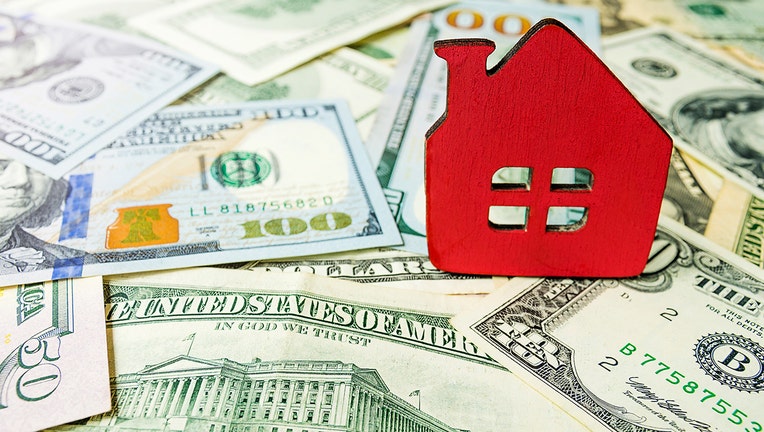When buying a house, should you consider making a large down payment?

Buying a house? Your financial situation and your goals determine when a larger down payment makes sense and when it doesn’t. (iStock)
When looking to buy a house, whether you can afford it is always a top consideration. This includes how much of a down payment you want to make on your new home.
Coming up with the cash for a down payment can be a barrier for prospective buyers. In 2019, the average down payment on a house or condo was 12%, according to the National Association of Realtors. For first-time buyers, the number drops to 6%.
However, if you have enough to make the 20% down payment, should you make the standard payment, or is it beneficial for you to put down more?
If you’re looking to purchase a home in today’s market, you can explore your mortgage options by visiting Credible to compare rates and lenders. Using an online mortgage calculator can also help you estimate monthly mortgage payments and narrow down home prices in your range.
BUYING A HOME AMID THE PANDEMIC? HERE'S THE CREDIT SCORE YOU NEED
How much is a standard down payment on a house?
The standard 20% down payment that most people think of when buying a house is a point of reference. Some buyers save until they have enough to make the standard down payment but having less than 20% won’t prevent you from getting preapproved for a mortgage loan. However, the minimum down payment requirement varies by lender and mortgage program so it’s important to be aware of the terms before picking a mortgage lender.
Borrowers making the standard down payment often have an easier time securing a mortgage. The 20% down payment lowers your loan-to-value (LTV) ratio and the lender would be assuming less risk by financing 80% of the home.
For potential borrowers who cannot afford to make the 20% down payment, lenders will likely view the loan as a riskier investment. Because of this, borrowers are required to take out private mortgage insurance (PMI) when making a down payment that's less than 20% on a conventional mortgage loan. PMI protects the lender if the borrower defaults on the loan and the home goes into foreclosure.
There are some mortgage programs that allow as little as 3% and some don’t require any money down. Here are some options:
- 0% down payment: VA loans for veterans, active duty service members and surviving spouses; USDA loans for those purchasing in rural and some suburban areas
- 3% down payment: The conventional 97 loan, Fannie Mae’s HomeReady mortgage and Freddie Mac’s Home Possible mortgage
- 3.5% down payment: The FHA loan has a minimum down payment of 3.5% and the minimum credit score is 580 to qualify
- Loan programs: Some lenders may only require a 3% down payment with no PMI payment requirements
You can explore your mortgage options in minutes by visiting Credible to compare rates and lenders. Check out Credible and get prequalified today.
WHAT IS PRIVATE MORTGAGE INSURANCE AND HOW DOES IT WORK?
Pros and cons of putting a large down payment on a house
Making a larger down payment on a house has its pros and cons. By putting down a larger down payment, borrowers can benefit from:
- A smaller monthly payment: A larger down payment means a smaller loan and lower monthly payments.
- No PMI: Borrowers must pay PMI if they make less than a 20% down payment. Borrowers pay mortgage insurance premiums with FHA-backed loans.
- A better mortgage interest rate: Putting more money down may give you a better interest rate on the loan.
- Lower closing costs: Certain closing costs are linked to the amount of the loan. Smaller loans typically have lower closing costs.
- Starting out with more equity: Home equity can be a long-term strategy for building wealth.
- Paying off the mortgage sooner: Putting down more money can help you to pay off the mortgage loan sooner.
Potential disadvantages of making a larger down payment include:
- It takes a while to save: A 20% down payment on a $250,000 home is $50,000. Saving that much money could take years.
- Drained savings: Putting everything towards a down payment could affect other savings, such as an emergency fund or retirement account contributions.
- Opportunity cost: Mortgage interest rates are currently at all-time lows and borrowers can take mortgage interest deductions on tax returns for the first $750,000 of the mortgage loan. It may be a better idea to make a smaller down payment and invest those funds elsewhere.
To find the best mortgage rate, start by using Credible. Credible can show you current mortgage rates from multiple lenders and help you make an informed decision regarding your home loan.
7 WAYS TO SAVE MONEY FOR A HOUSE
How much should you put down when buying a house?
The amount you pay as your down payment when buying a house depends on your goals and financial situation. Saving for a larger down payment may be worth considering if you prefer to have a lower monthly mortgage bill. Paying too much could mean sacrificing your other savings.
To get a better idea of how the down payment amount determines potential monthly payments, you should use an online mortgage calculator. And if you have any mortgage concerns, you can also visit Credible to get in touch with experienced loan officers and get your mortgage questions answered.
PAYING OFF YOUR MORTGAGE EARLY: PROS AND CONS
Have a finance-related question, but don't know who to ask? Email The Credible Money Expert at moneyexpert@credible.com and your question might be answered by Credible in our Money Expert column.

